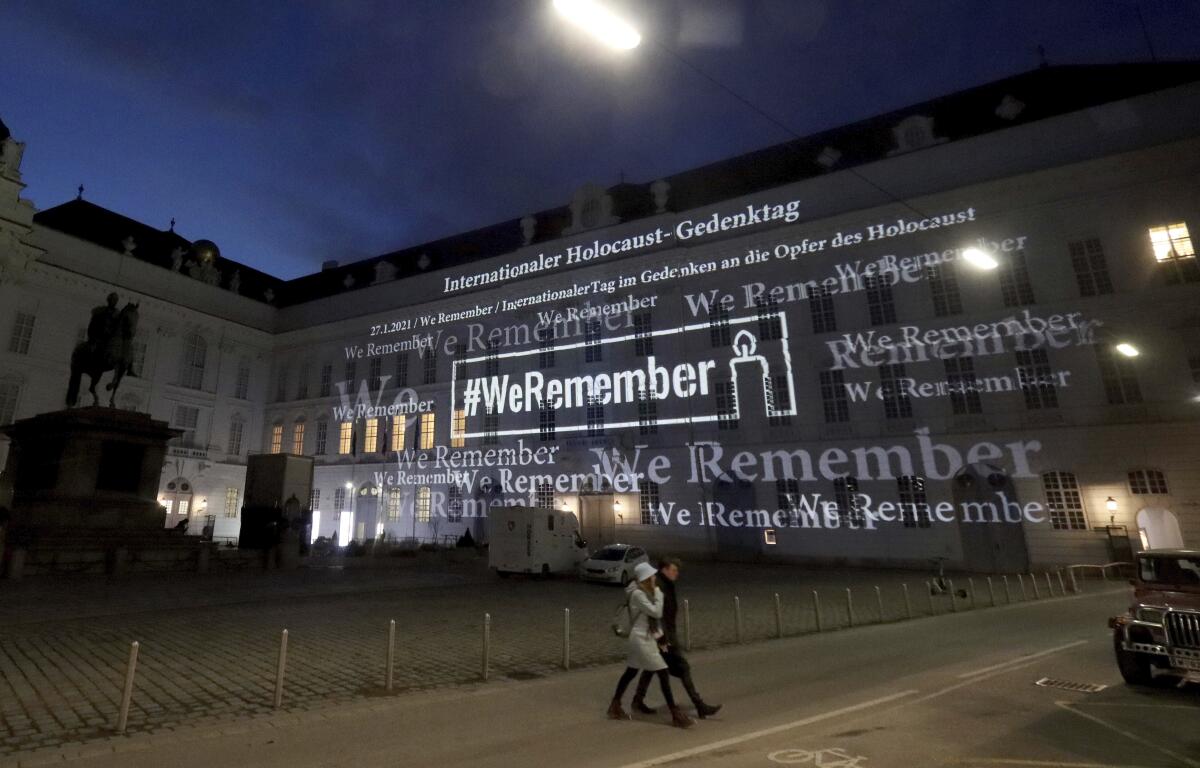Letters to the Editor: Schools are barely teaching the Holocaust. Survivors have stepped up

- Share via
To the editor: As chief executive of the first survivor-founded and oldest Holocaust museum in the United States, I was deeply moved by Gabriel Ascoli’s op-ed article, “At my high school, the Holocaust is barely taught in history class. That scares me.”
His deeply felt concern that the lessons of the Holocaust might not outlive the last survivors is a valid one. Indeed, sadly their years are numbered.
Holocaust Museum LA exists for one reason: to ensure the truth survives. We offer free Holocaust education online to students around the world in addition to all who pass through our doors, empowering them to stand up to bigotry, hatred and antisemitism.
We encourage Gabriel and anyone so inclined to learn what happened in that dark chapter of humanity and how to avoid it from ever repeating itself. We are the only free cultural institution in Los Angeles with a sole focus on the Holocaust.
As survivor and museum co-founder Jona Goldrich said: “It’s important for me to teach the young generation about the Holocaust. The world wants to forget the biggest horror mankind ever created, the murder of 6 million Jews by a country that was, at the time, considered the most cultured and enlightened in the world. I am fighting against forgetting.”
At Holocaust Museum LA, we fight that fight and strive to inspire humanity through truth. We are inspired by Gabriel Ascoli.
Beth Kean, Santa Monica
..
To the editor: I taught art to eighth-graders for 20 years, retiring in 2009. Every year I included a three-week assignment that absorbed the students in creating collages of images and words to reflect their understanding of how propaganda has been used for political ends.
I taught them how the strength of their message can be projected using the elements of art and principles of design, and we worked through the history with as much primary source material as possible, including visits to the Holocaust Museum.
The students’ own reflective essays at the culmination of the project always revealed how intensely the assignment had affected them.
Ascoli’s excellent essay saddens and worries me as I realize what my students experienced was not the norm, and given how intensely moved they all were by the lessons, I know they had great value. I feel gratified that I did a small part in the education of my art students for 20 years.
Rosalind Britton, Corona
..
To the editor: I attended high school in Los Angeles in the 1960s. Virtually all of my fellow students either knew Holocaust survivors personally or, as in my case, had friends whose parents were survivors, complete with numbered tattoos on their arms. They had varying degrees of willingness to talk about their experiences.
The subject was not only taught in school; there were also numerous books and television stories recounting the facts of that period.
If burying the subject of the Holocaust underneath Mesopotamian history is a nationwide trend in education, then we are indeed in troubling times. With the apparent worldwide movements toward authoritarian, borderline-fascist governments, it is no wonder that groups with neo-Nazi and white nationalist sentiments have gained purchase among a small but not insignificant segment of the public.
To paraphrase William Faulkner, the Holocaust is not history — it’s not even the past.
Edward M. Bialack, Woodland Hills






